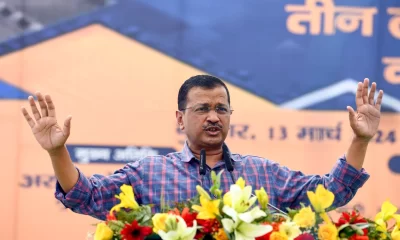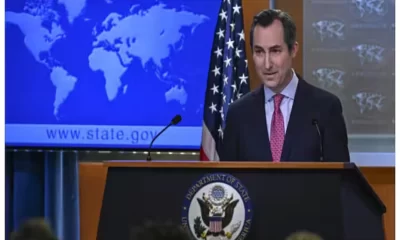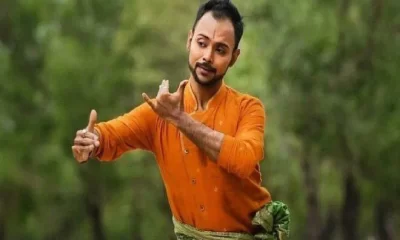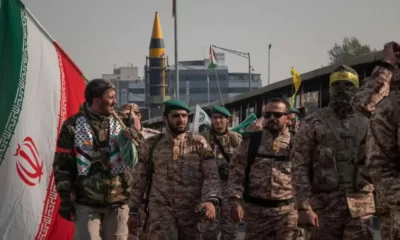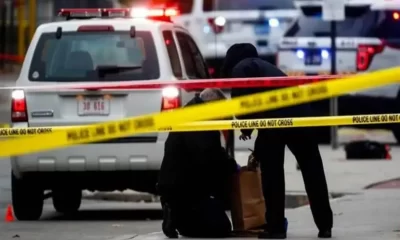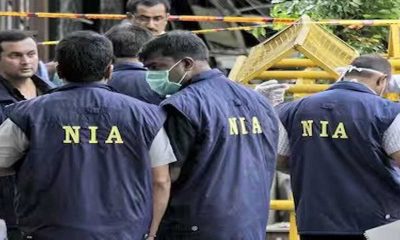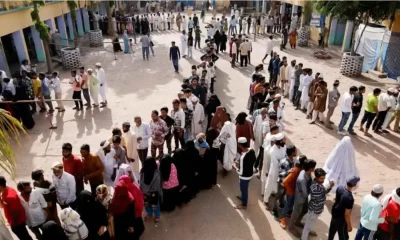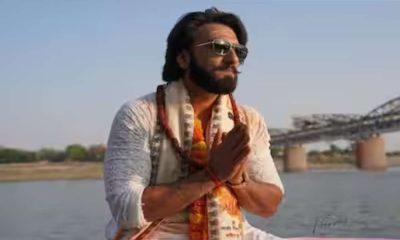Latest world news
Iraqi government rejects US notion on “foreign fighters”
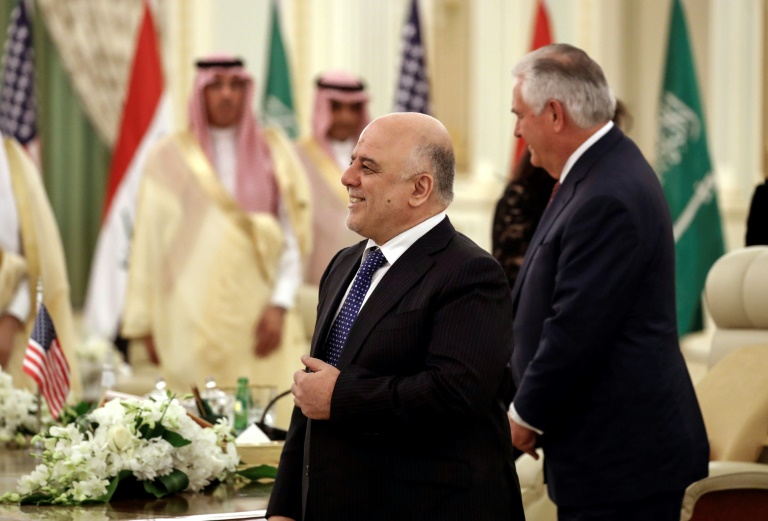
[vc_row][vc_column][vc_column_text]President Fuad Masoum supports deeper ties with Tehran
The Iraqi government has rejected the US notion of “foreigners” fighting against Daesh (IS) terrorists in its territory and advised Washington not to “intervene” in their affairs and decide “what the Iraqis should do”.
According to National Iraqi News Agency (NINA) report on Monday, a source close to PM Haider al-Abadi expressed his surprise at the remarks attributed to the US Secretary of State Rex Tillerson on “popular crowd”.
The mobilization force, locally known as “Hashd al-Sha’abi” was raised as a voluntary army in the wake of Ayatollah Siestani’s appeal to all Iraqis to save the country from Daesh terrorists. This mobilization force has been successfully fighting against terrorists along with Iraqi army, while Iranian military advisors have been supporting the whole battle. Tillerson used the term “popular crowd” for the most respected force in the country.
The source close to Iraqi PM said that “the fighters in the popular mobilization are Iraqi nationalists who have made great sacrifices to defend their country and the Iraqi people and are subject to the Iraqi leadership in accordance with the law legislated by the House of Representatives (parliament).”
The source further said “No one has the right to intervene in Iraqi affairs and decide what the Iraqis should do. The Iraqis are fighting on Iraqi soil and there is no foreign combat force in Iraq.”
The quick Iraqi reaction came after Secretary of State Rex Tillerson, has on Sunday, while participating at Saudi-Iraqi Coordination Council meeting in Riyadh, “called on militias to return to Iran after elimination of Daesh,” the Iraqi agency said.
According to Tehran based Press TV, Tillerson said Iran and all other countries currently helping Iraq in fight against terrorist groups need to leave Iraq now that the battle is drawing to close. He was quoted saying, “Any foreign fighters in Iraq need to go home and allow the Iraqi people to regain control.”
The Iranian media organization observed that the former oil executive (Rex Tillerson) did not clarify whether by “all” he also meant thousands of US forces who have been deployed to Iraq to supposedly “assist” Iraqi forces in their battle against Takfiri militants, a term used for Daesh (IS).
Meanwhile, Iraqi President Fuad Masoum, on Sunday had expressed his country’s interest in further developing the historical and deep relations between Tehran and Baghdad. He told this while receiving Saeed Awhadi, a senior advisor of Iranian Vice President at his Peace palace in Baghdad.
The visiting Iranian official, according to Iraqi official news agency NINA, stressed Iranian keenness to develop its relations with Iraq in all fields, and continue to help the Iraqi people “in its war against terrorism.”
According to Al-Arabia, Saudi monarch King Salman bin Abdul Aziz, while addressing the signing ceremony for MoU on establishing Saudi-Iraq Coordination council, said on Sunday, “What links Saudi Arabia to Iraq is not just geography and common interests but ties of fraternity, blood, history and destiny.” Iraqi PM Haider Al-Abadi and Rex Tillerson were present on the occasion.
Saudi Arabia is considered the closest US ally in the region after Israel. US President Donald Trump had his maiden foreign trip to Saudi Arabia where he met more than 50 heads of Muslim states.
On Monday, Iraqi PM has returned home after visiting Saudi Arabia, Egypt and Jordan immediately after big gains in fight against Daesh (IS) terrorists and Iraqi forces recapturing Kirkuk province by pushing Kurd Peshmargas associated with Kurdistan Regional Government (KRG). [/vc_column_text][/vc_column][/vc_row]
Latest world news
Bigg Boss 14 contestant Rahul Vaidya struggles walking in knee deep water, compares Dubai rains with Mumbai floods
Singer and TV personality Rahul Vaidya was recently stranded in the Dubai rains.

Rahul Vaidya, who was in Dubai ahead of his show which was scheduled to take place today, left the country due to heavy rains and reached Kolkata. The artist shared on social media his encounters in the UAE city, including challenges like walking through knee-deep water. Rahul provided an update regarding the heavy rainfall in Dubai on his Instagram profile.
The Bigg Boss 14 contestant revealed that he was in Kolkata and prepared to do an evening performance. Recalling the terrifying period he went through, Vaidya said there was a lot of confusion and panic in Dubai. The situation was similar to that when heavy floods hit Mumbai in 2005.
Vaiday also posted seval other images and videos of cars that were underwater and flooded roadways. The Bigg Boss 14 contestant, who shared his ordeal, claimed that even though it had just rained for two hours, the situation was dire.
In one of the video, which went viral he can be seen struggling in walking in knee-deep water. He can be also seen holding his sneakers in one hand and with other hand he was seen managing other things.
This is the result of the two hours of rain that it had, he can be heard saying in the video. Vidya also said he dosen’t believe Dubai is accustomed to a lot of rain. Everything had stopped working, he remarked.
After taking part in the first season of the singing reality show Indian Idol, Rahul Vaidya gained widespread recognition. In addition to Bigg Boss, he took part in Khatron Ke Khiladi 11.
Meanwhile, heavy rains that triggered flooding in the UAE and Bahrain, which left 18 people dead in Oman on Sunday and Monday, have paralyzed the financial hub of the Middle East, Dubai.
A lot of incoming flights were diverted from Dubai’s international airport because of the rain. At 7:26 p.m., the busiest airport in the world for foreign visitors stopped accepting new arrivals; a gradual resumption was announced for more than two hours later.
Images of planes navigating flooded tarmacs are making the rounds on social media.
According to pictures shared on social media, the flagship malls Dubai Mall and Mall of the Emirates both experienced heavy floods, while at least one Dubai Metro station had water up to the ankles.
There were several road collapses, severe flooding in residential areas, and numerous reports of leaks from windows, doors, and roofs.
Due to the unfavourable weather, schools around the United Arab Emirates were forced to close, and as more storms are predicted, the closures are anticipated to last until Wednesday. The government of Dubai allowed its staff to work remotely till this Wednesday.
Latest world news
Dubai sky turns green during storm in UAE, video goes viral
The UAE witnessed record-breaking rainfall on Tuesday and the National Centre of Meteorology recorded 254 mm of rainfall in less than 24 hrs in the Khatm Al Shakla area in Al Ain.

1 person was killed in UAE as it witnessed heavy rainfall on Tuesday, stranding commuters, flooding roads, disrupting trains and flights and resulting in water leakage from mall ceilings. The UAE witnessed record-breaking rainfall on Tuesday and the National Centre of Meteorology recorded 254 mm of rainfall in less than 24 hrs in the Khatm Al Shakla area in Al Ain. It is being said that the rainfall was the highest documented since the start of data collection in 1949.
The heavy rainfall in UAE came days after a similar situation in neighbouring Oman, where 13 people were killed in flash floods. Many parts of Oman saw torrential rains, which caused students to be trapped in buses and swept away motorists and trapped people in their homes.
Videos from Dubai circulating on social media showed widespread waterlogging on roads in Abu Dhabi, Dubai and other important cities. This left daily commuters in cars and other vehicles struggling to get back home. Dubai metro station too was seen flooded and closed.
One such video circulating on social media shows the aerial view of the city of Dubai from the top of a building. In the video the stormy winds are seen blowing over the city of Dubai. As the storm intensifies the Dubai sky turns green and ultimately gets covered by heavy rainfall. The video has gone viral on social media with more than 1.1 million views.
Another video showed water leakage from the ceilings of shopping malls, flooding the floors and destroying goods. A video which was shot in the famous Mall of the Emirates, showed pieces of ceiling falling as the rainwater gushed inside. Videos from many outlets of the Deira City Centre mall chain showed escalators being rendered unusable. Majid Al Futtaim, the company which owns the Mall of Emirates, said that the shopping complexes have been kept open and the customers are being sent away from the flooded areas.
India News
Sri Lankan Minister Douglas Devananda says statements on reclaiming Katchatheevu island from Sri Lanka have no ground
Devananda told the media on Thursday that it is not unusual to hear such claims and counterclaims about Katchatheevu as elections are taking place in India.
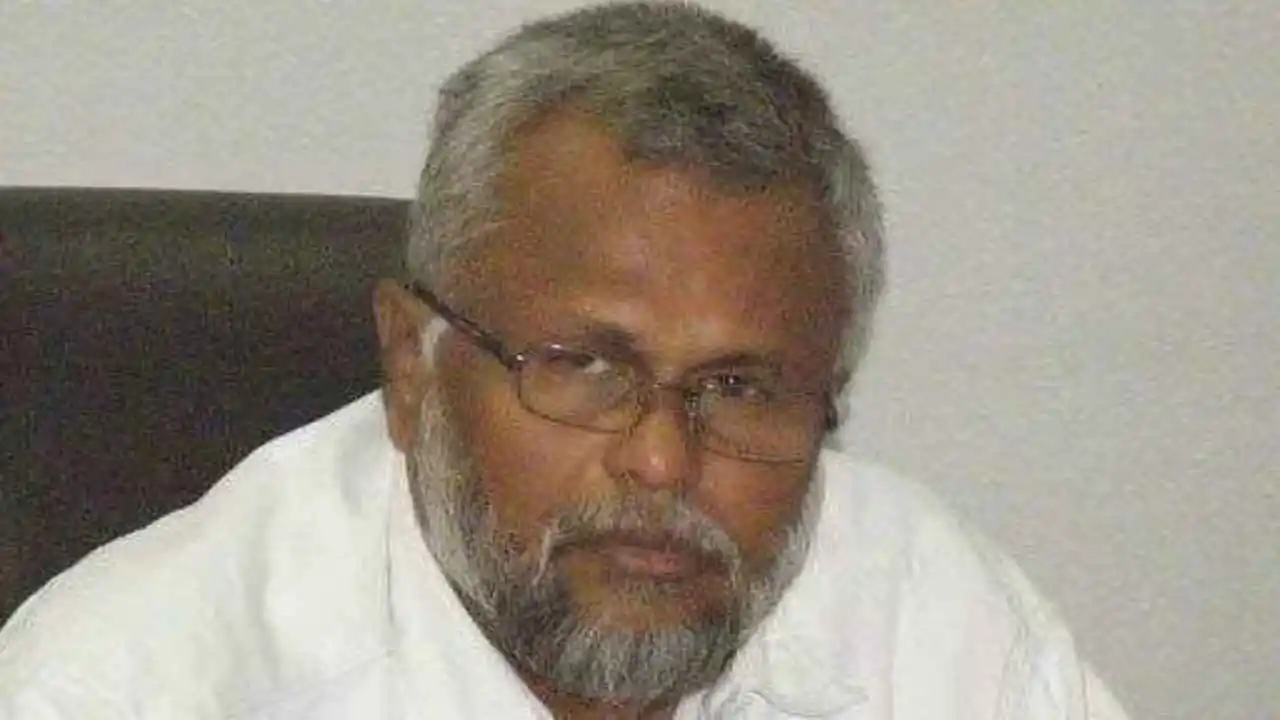
Sri Lankan Minister Douglas Devananda has said the statements from some political leaders in India on reclaiming Katchatheevu from the island nation have no ground. He told the media on Thursday that it is not unusual to hear such claims and counterclaims about the strategic island as elections are taking place in India.
The Sri Lankan Minister said he thought India is acting on its interests to secure this place to ensure Sri Lankan fishermen would not have any access to that area and that Sri Lanka should not claim any rights in that resourceful area. According to the 1974 agreement, Devananda said Indian and Sri Lankan fishermen can go fishing in the territorial waters of both countries until the pact was reviewed and amended in 1976.
The amended agreement resulted in fishermen from both countries being barred from fishing in neighboring waters. India’s ministry of External Affairs (MEA) on Thursday steered clear of the row surrounding Katchatheevu island. To a volley of questions on the Katchatheevu issue, MEA spokesperson Randhir Jaiswal reffered to External affairs Minister S Jaishankar’s recent comments on the matter.
He said he would like to talk about the issue that has been raised. He added the External Affairs minister has spoken to the press here in Delhi and also in Gujarat and has clarified all the issues. He said everyone should look into the press engagements and they would find the answers to their questions there.
The remarks from Devananda, a Sri Lankan Tamil, came days after the Narendra Modi government accused the Congress and its ally DMK in Tamil Nadu of overlooking national interests by handing over Katchatheevu island to Sri Lanka in 1974. The BJP has also been slamming the 2 parties for not ensuring the rights of the fishermen wanting to fish in waters around the island.
-

 Entertainment21 hours ago
Entertainment21 hours agoDo Aur Do Pyaar social media review: Social media users say Vidya Balan, Pratik Gandhi deliver standout performances in this adorable film
-
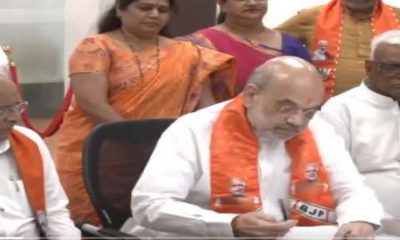
 2024 Lok Sabha Elections22 hours ago
2024 Lok Sabha Elections22 hours agoLok Sabha elections 2024: Amit Shah files nomination from Gandhinagar
-

 Entertainment23 hours ago
Entertainment23 hours agoYami Gautam starrer Article 370 releases on Netflix today
-
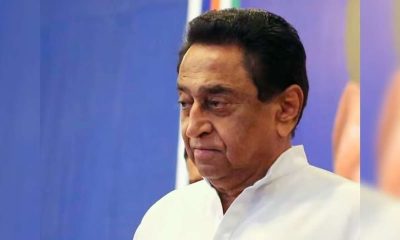
 2024 Lok Sabha Elections18 hours ago
2024 Lok Sabha Elections18 hours agoDeserted by key supporters, the Kamal Nath story looks set to wind to an end in Chhindwara
-
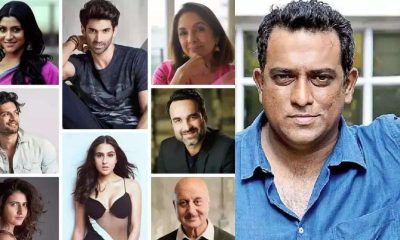
 Entertainment20 hours ago
Entertainment20 hours agoAditya Roy Kapur, Sara Ali Khan’s Metro In Dino to release this November
-
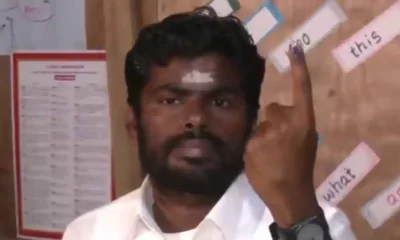
 2024 Lok Sabha Elections24 hours ago
2024 Lok Sabha Elections24 hours agoTamil Nadu BJP chief K Annamalai says party will sweep Karnataka and emerge victorious in Telangana, accuses DMK, AIADMK of influencing voters in Coimbatore
-

 2024 Lok Sabha Elections24 hours ago
2024 Lok Sabha Elections24 hours agoLok Sabha elections 2024: Newly married couple cast vote in Jammu and Kashmir’s Udhampur, video goes viral
-
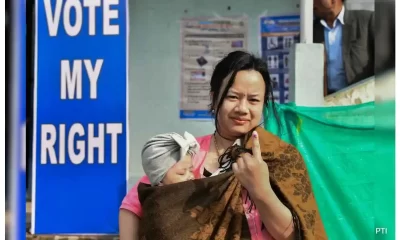
 2024 Lok Sabha Elections20 hours ago
2024 Lok Sabha Elections20 hours agoLok Sabha Elections 2024: Nearly 40% voter turnout till 1pm

